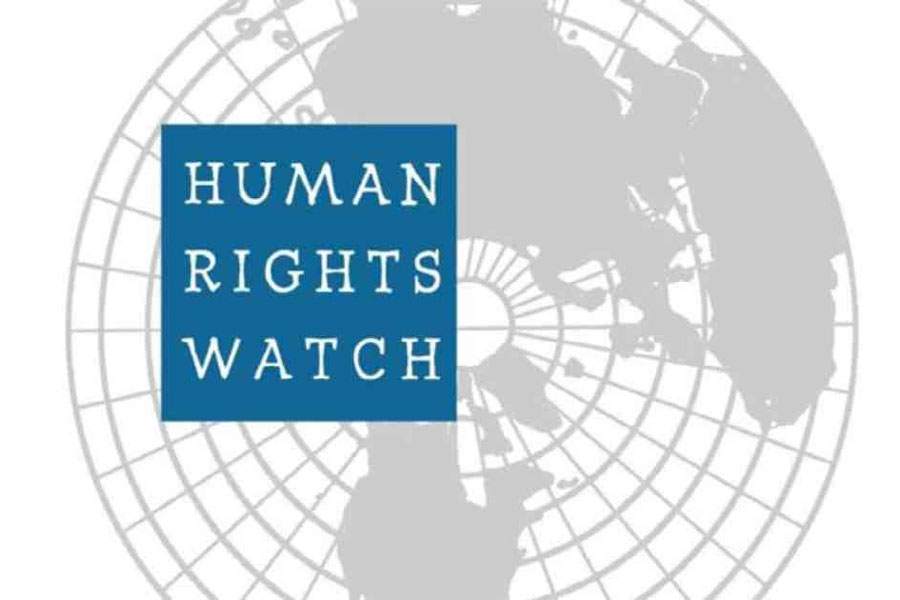Interim government using counterterrorism law for renewed crackdown: HRW

Published :
Updated :

Bangladesh’s interim government led by Muhammad Yunus, a Nobel peace laureate, is increasingly using the recently amended counterterrorism law to arrest alleged supporters of the deposed Awami League government, Human Rights Watch has said in a statement.
The United Nations human rights team in Bangladesh should immediately seek the release of those arbitrarily detained and encourage the authorities to uphold rights and prosecute all those who use unlawful political violence, the rights body said in the statement issued on Wednesday.
The interim government took office in August 2024 after former Prime Minister Sheikh Hasina’s Awami League government was toppled following three weeks of protests in which 1,400 people were killed, HRW said.
On May 12, 2025, the interim government ordered a “temporary” ban on the Awami League, using new authority under draconian amendments to the Anti-Terrorism Act. The ban includes prohibitions on meetings, publications, and online speech supporting the party and is being used to arrest Awami League members and peaceful activists, according to the statement.
“The interim government should not be engaging in the same partisan behaviour that Bangladeshis had to endure under Sheikh Hasina, whether it is stuffing the prisons with political opponents or shutting down peaceful dissent,” said Meenakshi Ganguly, deputy Asia director at Human Rights Watch.
“The UN’s human rights office has been invited by the government to support the protection of human rights in Bangladesh, and it should monitor developments and urgently intervene to discourage politically motivated arrests.”
Thousands have been arrested under the interim government, many on dubious murder allegations, while scores are being held under the Anti-Terrorism Act. Several have alleged mistreatment in custody, including lack of access to medical care, a chilling reminder of similar allegations under the Sheikh Hasina government, the rights body mentioned.
Police detained 16 people, including journalists and academics, on August 28 at a discussion organized by Mancha 71, a platform that celebrates Bangladesh’s independence from Pakistan in 1971. At the public meeting in the office of the Dhaka Reporters Unity, an independent media association, a mob surrounded and heckled the participants, accusing them of being loyal to the Awami League because the party promotes its role in the freedom struggle, as per the statement.
The Anti-Terrorism Act was enacted in 2009 under the Awami League government. Officials said the 2025 amendments were needed to hold Awami League party members accountable for their abuses while in power, and that they were acting on demands from political parties and student organizations, HRW said.
Suppressing the right to peaceful speech and association violates international standards. The Bangladesh Editors’ Council warned that the amendments to the Anti-Terrorism Act would “curtail people’s freedom of expression and limit the wide scope of freedom of the mass media, which is worrying and it would threaten freedom of the press.”
Yunus, however, has denied any restrictions on freedom of expression, the rights body stated.
"The government has also been unable to contain conservative Muslim interest groups that have engaged in violence to press their demands, ranging from targeting alleged Awami League supporters to opposing women’s rights", HRW added.


 For all latest news, follow The Financial Express Google News channel.
For all latest news, follow The Financial Express Google News channel.